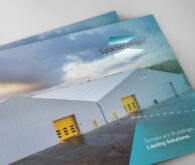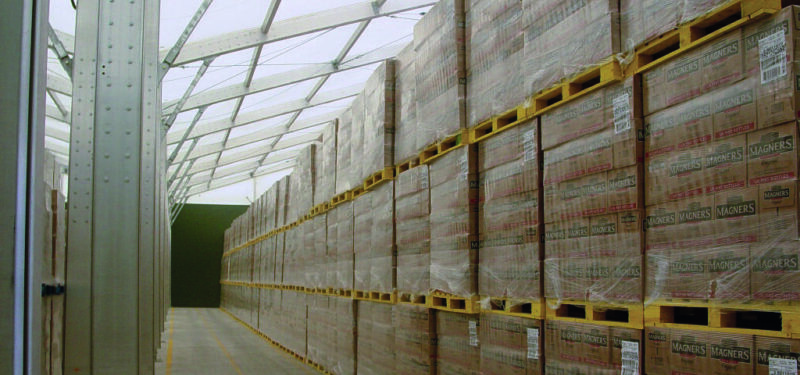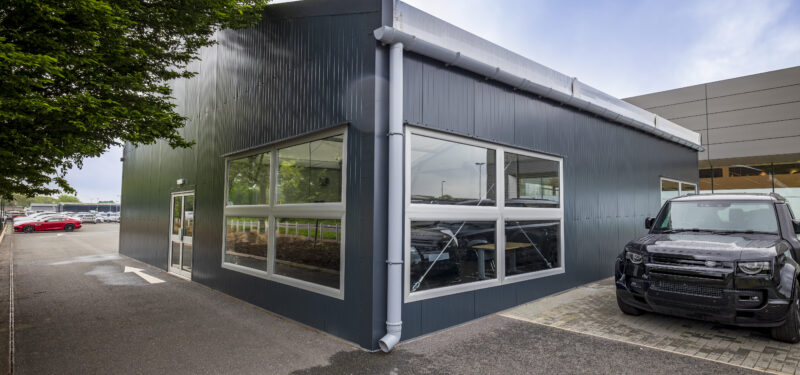Are There Specific Industries That Prefer Insulated Temporary Warehouses?
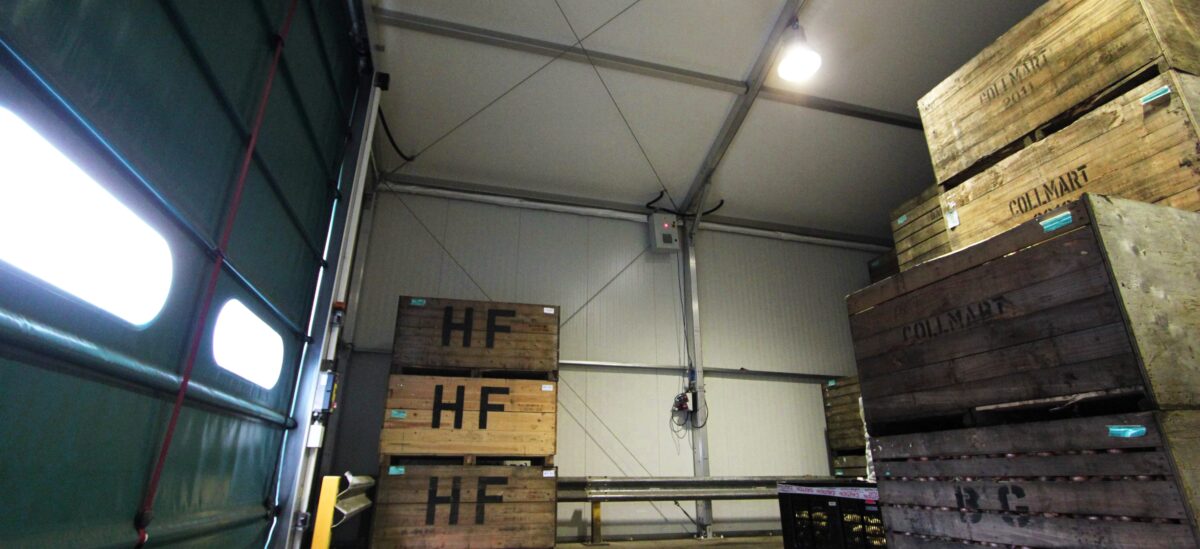
When it comes to storage, one size doesn’t fit all— especially when environmental conditions are critical to product quality, safety, or performance.
That’s why insulated temporary warehouses have become an increasingly popular solution across a range of industries. These modular structures offer all the benefits of fast deployment and flexibility, with the added advantage of internal temperature stability. But which industries specifically rely on them—and why?
In this blog, we take a closer look at the sectors where insulated temporary warehouses are not just beneficial, but often essential.
Cold storage
For businesses that deal with frozen or chilled goods, temperature control is non-negotiable. Insulated temporary warehouses allow companies in the cold storage sector to maintain sub-zero temperatures while expanding capacity quickly. Whether responding to seasonal demand or scaling operations, Spaciotempo cold storage structures offer a practical alternative to building permanent cold storage facilities.
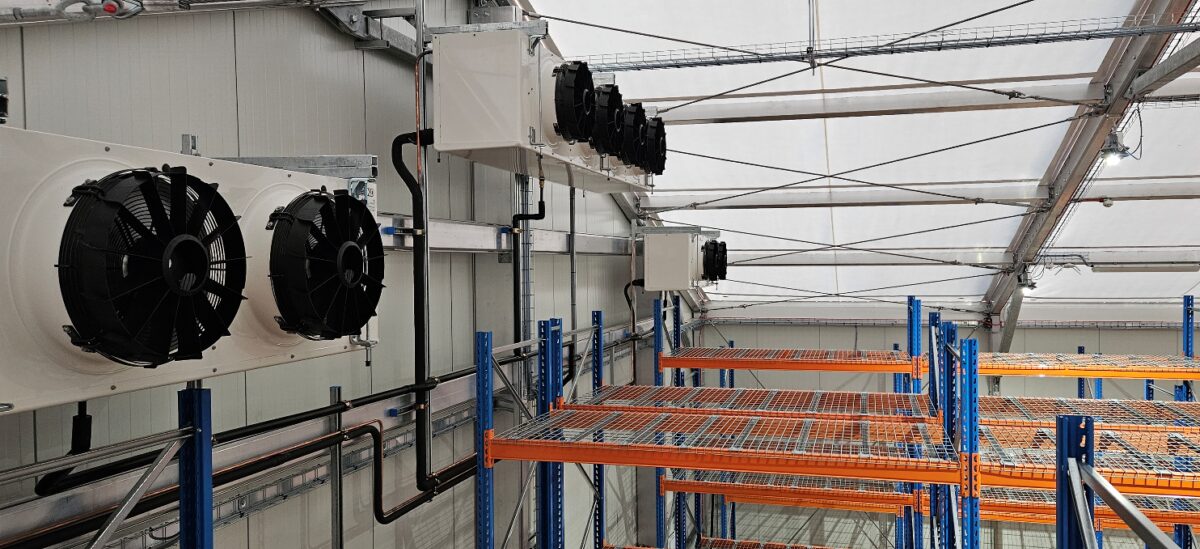
Food & beverage
From dairy and meats to wines and confectionery, the food and beverage industry relies heavily on maintaining stable temperatures to preserve quality and shelf life. Insulated temporary warehouses protect products from heat fluctuations and condensation, helping to meet strict food safety standards such as HACCP. They are particularly useful during production peaks or when existing facilities are undergoing refurbishment.
Temperature-controlled produce
From dairy and meats to wines and confectionery, the food and beverage industry relies heavily on maintaining stable temperatures to preserve quality and shelf life. Insulated temporary warehouses protect products from heat fluctuations and condensation, helping to meet strict food safety standards such as HACCP. They are particularly useful during production peaks or when existing facilities are undergoing refurbishment.
Through our enhanced range of customisation options, Spaciotempo offers ancillaries such as dock levellers and canopy extensions to help HGV's and lorries load and distribute fresh produce quicker.
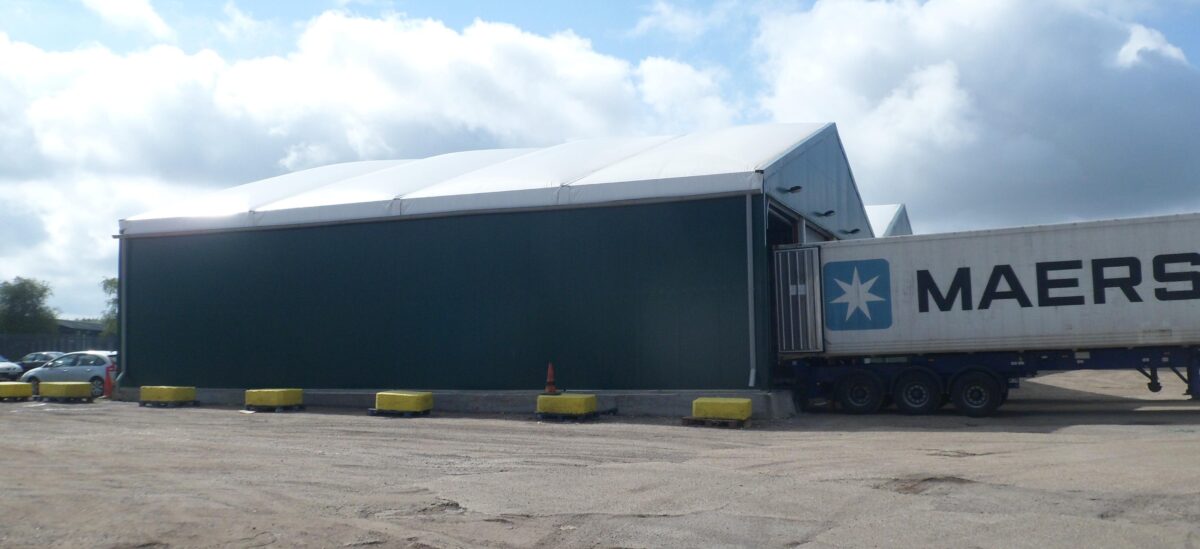
Pharmaceutical & medical goods
Pharmaceuticals and medical supplies often have strict regulatory requirements around storage conditions. Insulated temporary warehouses can be equipped with HVAC systems to create a fully controlled environment, making them ideal for storing vaccines, medications, and laboratory equipment. For pharmaceutical businesses needing rapid expansion or distribution space, they offer both compliance and speed.
Manufacturing environments
In sectors like automotive, aerospace, machinery and electronics production, maintaining a consistent internal environment is vital for the integrity of raw materials, adhesives, and finished components. Insulated temporary workshops ensure temperature-sensitive processes and storage conditions remain unaffected by external weather changes. They also provide on-site space without disrupting production.
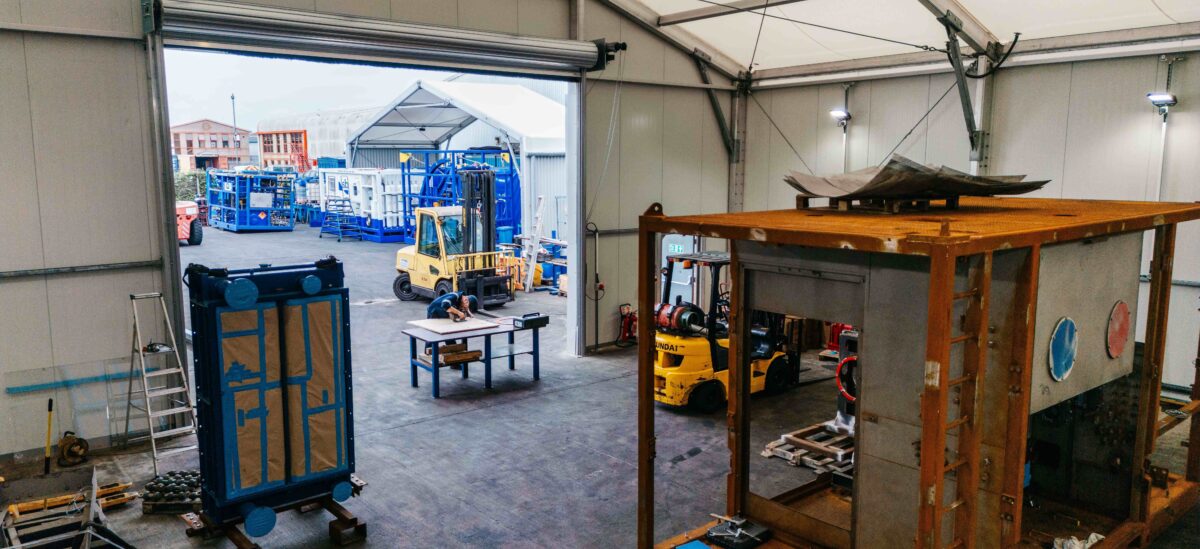
Insulated vs Non-Insulated Temporary Warehouses: Which is Right for your Business?
Discover which option is right for your business based on it's specific needs and day to day activities. Make an informed decision for your specific temperature controlled requirements.
Meeting sustainability goals
More and more businesses are looking to reduce their energy consumption and carbon footprint, just like Spaciotempo - who have our own sustainability business practices. Insulated temporary warehouses naturally improve thermal efficiency, requiring less energy to heat or cool the space. Compared to building new permanent facilities, they also offer a lower-carbon alternative—supporting sustainability goals without compromising on performance.
Ambient storage
Even when goods don’t require chilling or freezing, maintaining an ambient temperature can still be crucial. Insulated structures help to keep conditions consistent year-round, avoiding extreme fluctuations that could impact packaging, labelling, or product integrity—especially in the case of goods like cosmetics, dry foods, or electronics.
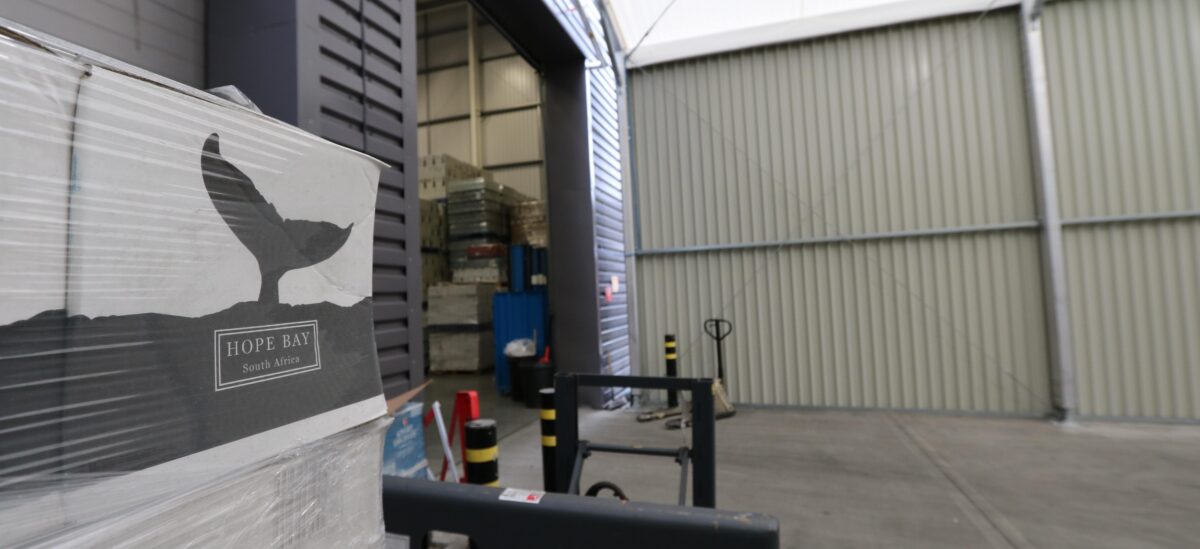
Q1: Can insulation be added to an existing non-insulated temporary warehouse?
Yes, insulation can be added to an existing non-insulated temporary warehouse—and at Spaciotempo, we make the process as seamless as possible. Whether your operational needs have changed, or you're experiencing greater sensitivity to temperature variations, our expert team can retrofit insulation to your existing structure. This might include insulated wall panels, thermal roof linings, or even integrated HVAC systems to create a fully temperature-controlled environment.
Our renowned aftercare service means we’re on hand long after your building is installed. From minor upgrades to full modifications, Spaciotempo can adapt your warehouse to suit your evolving requirements—without the disruption of starting from scratch. It’s all part of our commitment to providing flexible, future-proof storage solutions that grow with your business.
Q2: How do insulated temporary warehouses maintain temperature control?
Insulated temporary warehouses are designed to create a stable internal environment by reducing the transfer of heat between the inside of the building and the outside world. This is achieved through high-performance insulation materials—such as insulated wall panels, double-skinned roofing systems, and thermal gable infills—which significantly limit heat gain in summer and heat loss in winter.
For more precise temperature regulation, these structures can be fitted with HVAC (heating, ventilation, and air conditioning) systems that work efficiently thanks to the building’s inflated thermal roof envelope. The insulation not only improves energy efficiency but also helps maintain consistent humidity levels.

Conclusion
While insulated temporary warehouses serve a wide range of purposes, they are especially valuable in industries where temperature control is critical to operational success—from cold storage and pharmaceuticals to food production and precision manufacturing. These structures provide a fast, flexible solution for safeguarding sensitive goods and maintaining compliance, while also supporting long-term sustainability goals.
What’s more, insulation doesn’t need to be part of the original specification. If your storage requirements change, insulation can be added to an existing temporary warehouse with minimal disruption. Thanks to Spaciotempo’s renowned aftercare and modification service, we can upgrade your facility with insulated panels, thermal roof linings, and HVAC systems to suit your evolving needs.
By combining robust insulation materials with optional temperature-control systems, insulated temporary warehouses are able to maintain a stable internal environment all year round—improving energy efficiency, protecting product integrity, and offering businesses peace of mind.
If you're exploring ways to enhance your storage or operational space, an insulated temporary warehouse could be the adaptable, future-proof solution your business needs. Visit our dedicated temporary building insulation options page to learn more about the solutions we provide and have your questions answered.
Industrial Brochure
Download our Industrial Brochure to explore how Spaciotempo’s insulated temporary warehouses can support your operation. We offer non or full full temperature control solutions.
